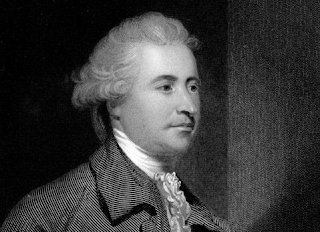The fantasy epic Lord
of the Rings takes a close look at how evil and despair seed the doom of all
unless courage is found to check it! Does the “real world” need to take note?
I’m sure everybody knows the epic middle earth
adventures of Frodo, Gandalf and the fellowship of epic heroes fighting the
forces of the evil Lord Sauron and his cohort; the deceptively evil sorcerer
Saruman!
The character Gandalf the Grey
as played by Ian McKellen
was a wise and powerful wizard on the side of good against such evil that
corrupted the hearts of men to dominate middle earth and herald in a dark age
that would have no end. In the first movie “The Fellowship of the Ring”,
Gandalf was under the control of his mentor and friend “Saruman the White” who
deceived and misdirected him in his quest to destroy “the Ring” of darkness
that dominates all other rings given to Men, Wizards, Elves and the Dwarfs of
middle earth.
The storyline continues to a point where our hero
Gandalf becomes suspicious of Saruman’s deception; confronting him in an epic
battle of good versus evil. Saruman challenged by Gandalf tries to appeal to
him to join him! Saruman does this by using the overarching power of Lord
Sauron and how pointless it is to oppose him due to a “misguided sense of duty”
to his friends and the people of middle earth. He plays on the odds of losing
to try and create a sense of learned helplessness
in Gandalf and weaken his resolve to oppose him. Gandalf, who appears less
powerful but committed to his sense of morality cries foul of this betrayal and
makes a stand regardless of the odds against him. He loses the battle but
allies with other good men, elves and dwarfs to battle the dark forces opposing
them, which leads our heroes to ultimate victory.
So, even in a fantasy based story like this, can we
draw parallels to the real world of business? Does the use of over arching
power to override core values with learned helplessness and take away hope by
dominating those in important positions under such influence actually happen?
A worthy question, which is hard to answer in my view.
It is definitely possible but it depends on the person, their sense of self/character,
their core values and their situation in life. So here are some indicators to look out for the signs
of learned helplessness and what to do in your company to be the unsung hero of
the day saving it (or you!) ultimately from itself!
Be practical!
Know what your company is in practice as well as on paper. Has it a
hierarchical, clan, adhocracy or market culture? Where does the customer,
employee, manager and leader sit in the hierarchy? Are employees engaged and
listened to? Are good decisions for the greater good cheered or punished based
on ethics/longer term benefit v short term cash return? If those answers are
inherently negative and paint a picture where employees are treated as mindless
tools in a corporate toolbox only capable of only doing their strictly enforced
job descriptions, then it’s likely that learned helplessness is the only coping
mechanism employees have to survive an oppressive management regime. If one
reaches such an opinion from their research, it’s better to walk away from such
a company, which by design eats itself from the inside out and is content with
a shortened company lifecycle!
Know yourself! Be
true to yourself in matters of the heart, which includes the wish to be happy!
If your vocation in life lies elsewhere, giving up on where you belong because
you don’t know yourself or trust your abilities is just wrong! We are all part
of something bigger and will only feed the darkness by being unhappy and
feeling trapped in a life we made and only we can really change! Know yourself,
take responsibility for yourself and then you can change anything about your
world you need to for a better future in life!
Moral Courage. A
shiver goes down my spine when I think of how many times I have heard of
outrageous and grievous actions taken by bad people against good people whom
had leaders that lacked the moral courage to defend their people and/or
position against the ill intent of the wicked! Moral courage builds your
character and your reputation. It shapes your future and tests you to the ends
of your beliefs and your wits! Win that inner battle and your path ahead will
only get better, lose that battle and you allow the forces of darkness to roam
unchallenged in a more subtle yet similar fashion to its advance in the Lord of
the Rings
Priorities… where you belong. Just
like the heroes of the Lord of the Rings, we should consider others before
ourselves yet never stop our quest to find that place where we belong! Despite
what some ‘gig economy’ proponents say, we all must find our place in this
world. If working on a company’s payroll doing what you love for that company
to the best of your ability, then so be it! Such a contribution is not a “cost”
to any company; your above average performance is a contribution to that
company as much as it is to yourself because you have found your place in life
to excel at being you!
Associate with link minded peers! Edmund
Burke once said; “When bad men combine,
the good must associate; else they will fall, one by one, an unpitied sacrifice
in a contemptible struggle.” This is as true today
as it ever was, which is why doing nothing carries such a tragic cost for those
too weak to dig deep and associate with linked minded peers for a greater good
outcome! If you think dark self serving interests will not find you, then you
are already found and under its influence. Context of situation and associated
remedy is only possible through networking and peerage. Even the great “Gandalf
the Grey” established a like minded peerage to succeed in life. I argue we are
no different especially in today’s world.
With wealth distribution narrowing along with the
tolerance for constructive dissent and sustainable business practices, thinking
of the longer term consequences of our actions is as critical as it ever was!
We need to carry our self past the pettiness and politics of the day to
associate with like minded peers and bring back the balanced approach to love,
life and the pursuit of happiness. It will carve out a sustainable future in
business leaving only good intent to dwell as our proud legacy!
Sources/Credits:
Pics;
Credits;
Character Bio ‘Gandalf the Grey”: http://www.imdb.com/character/ch0000143/bio
Learned Helplessness definition: https://en.wikipedia.org/wiki/Learned_helplessness




